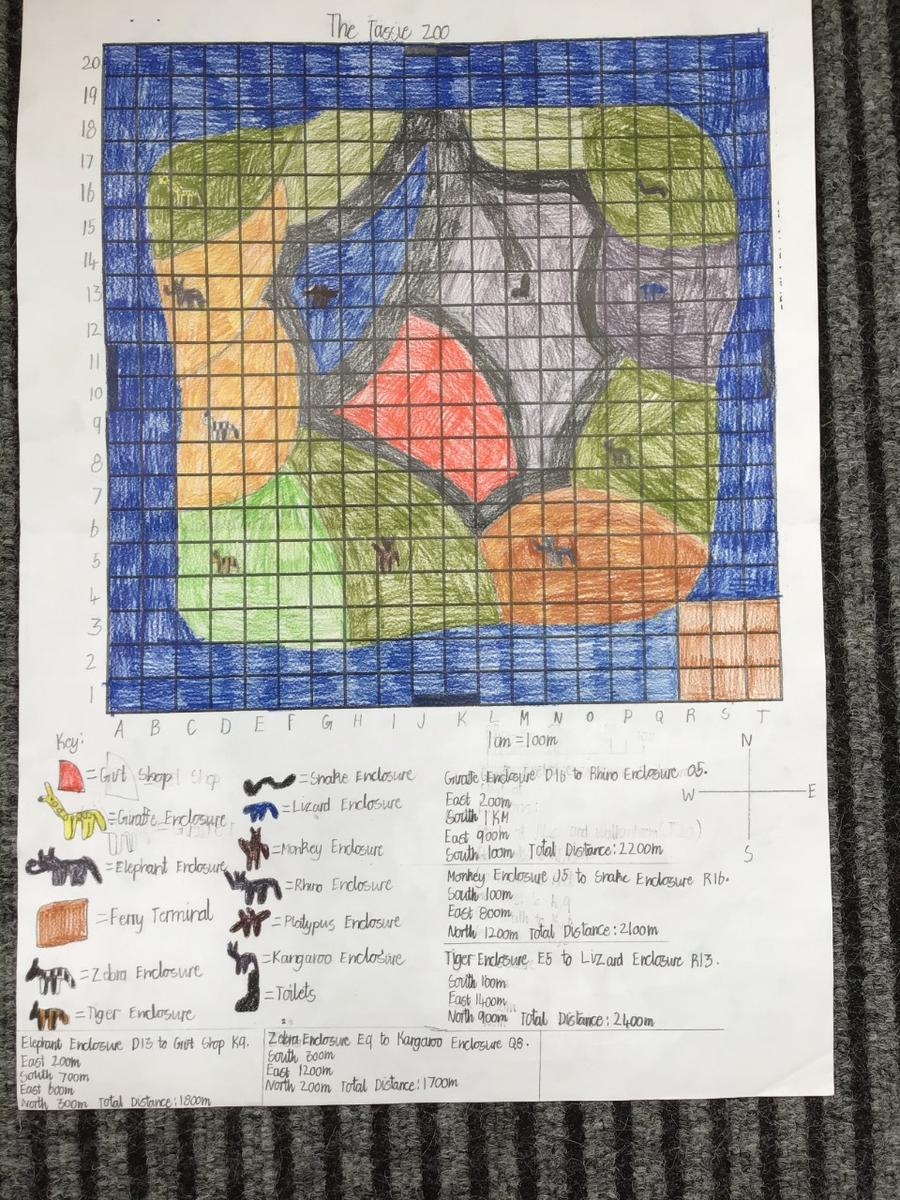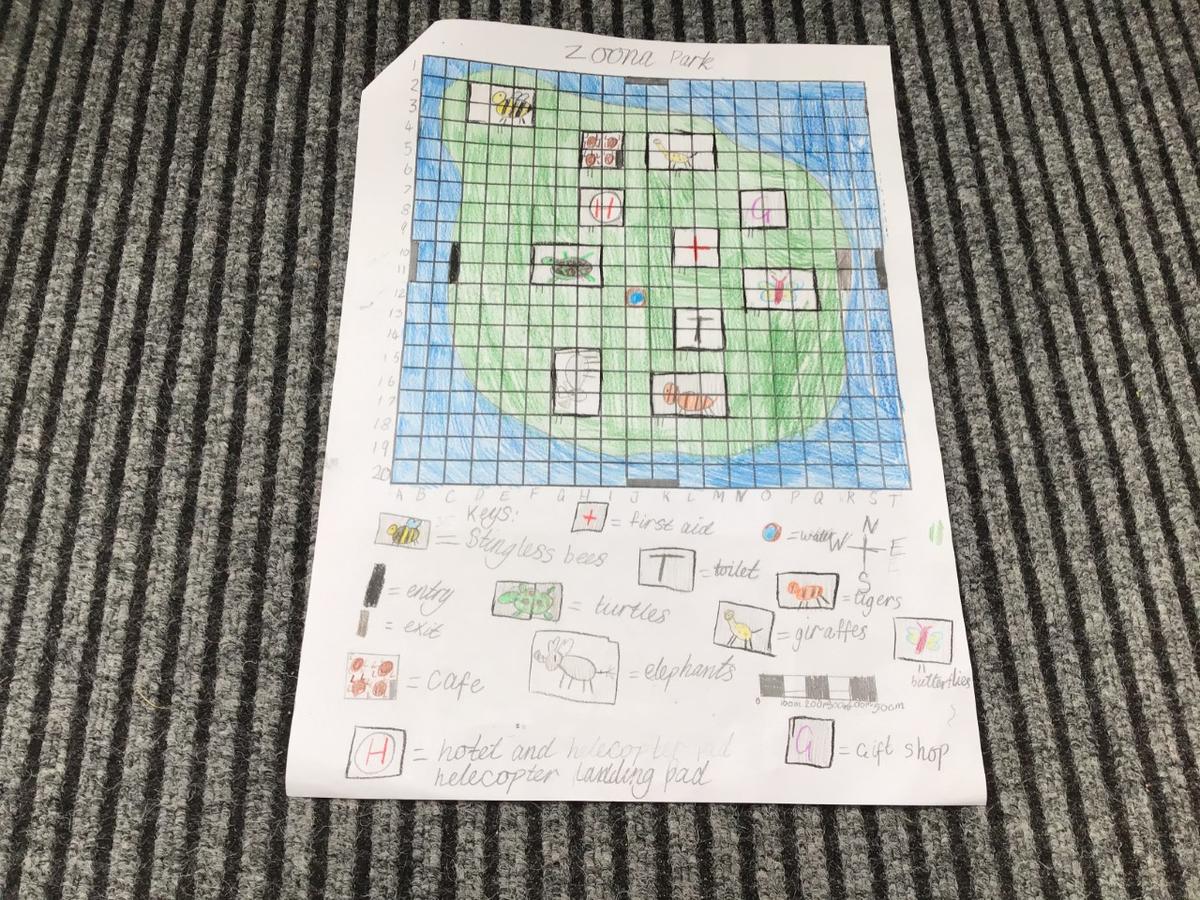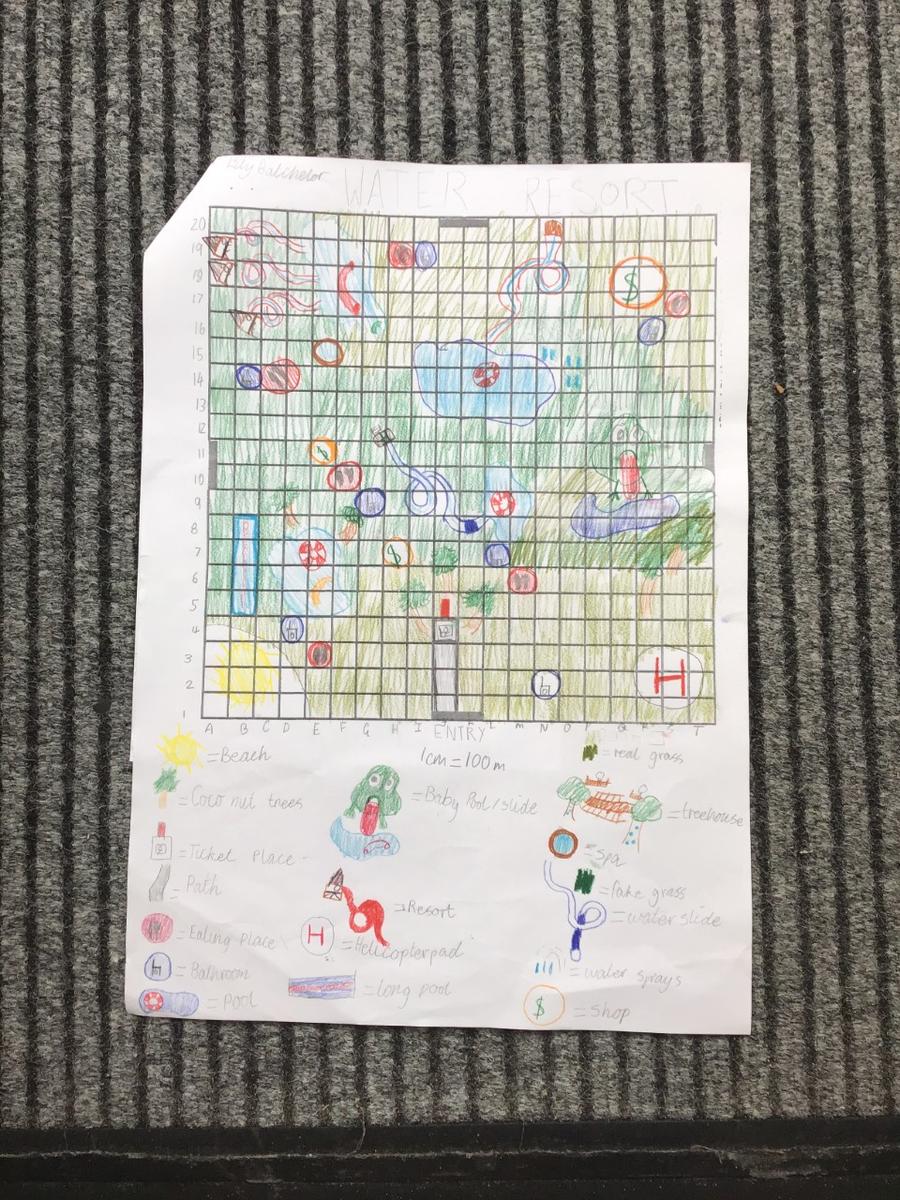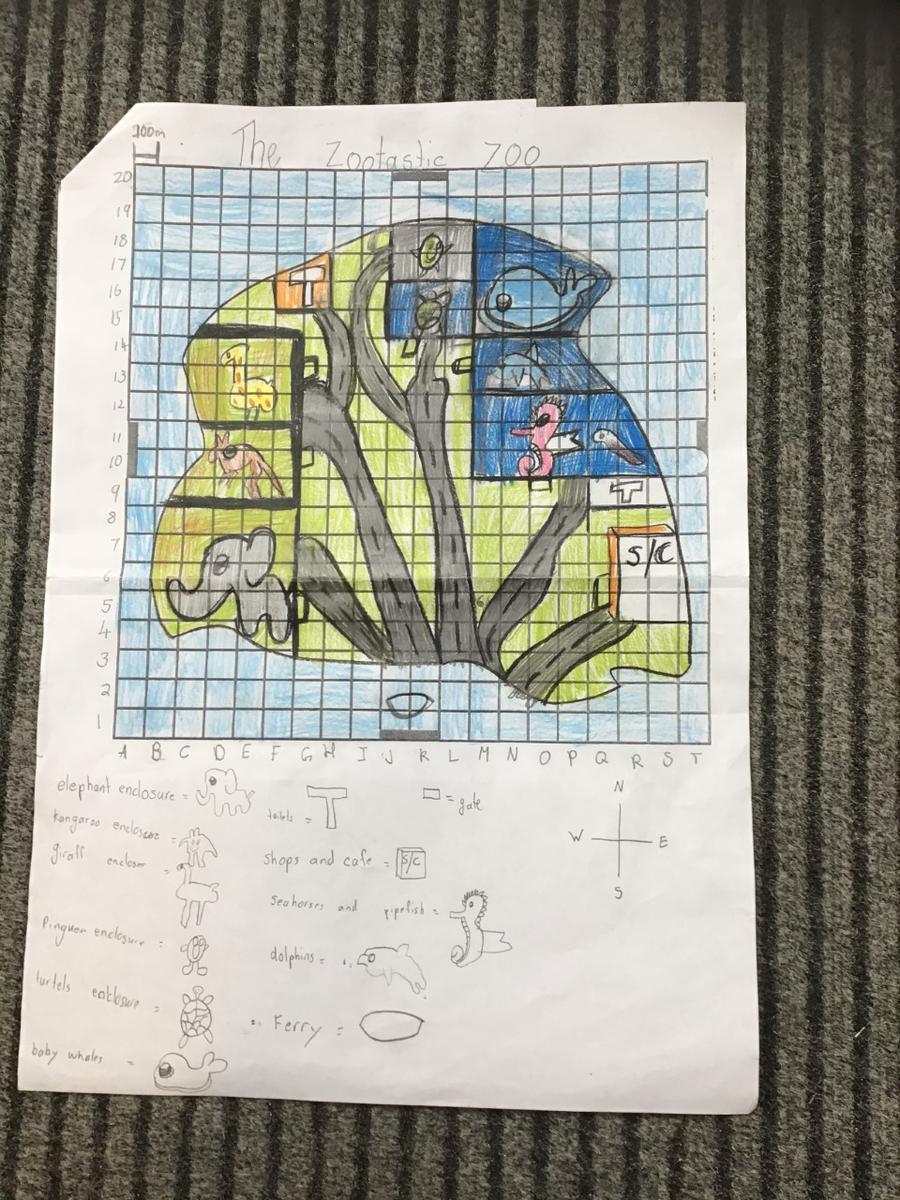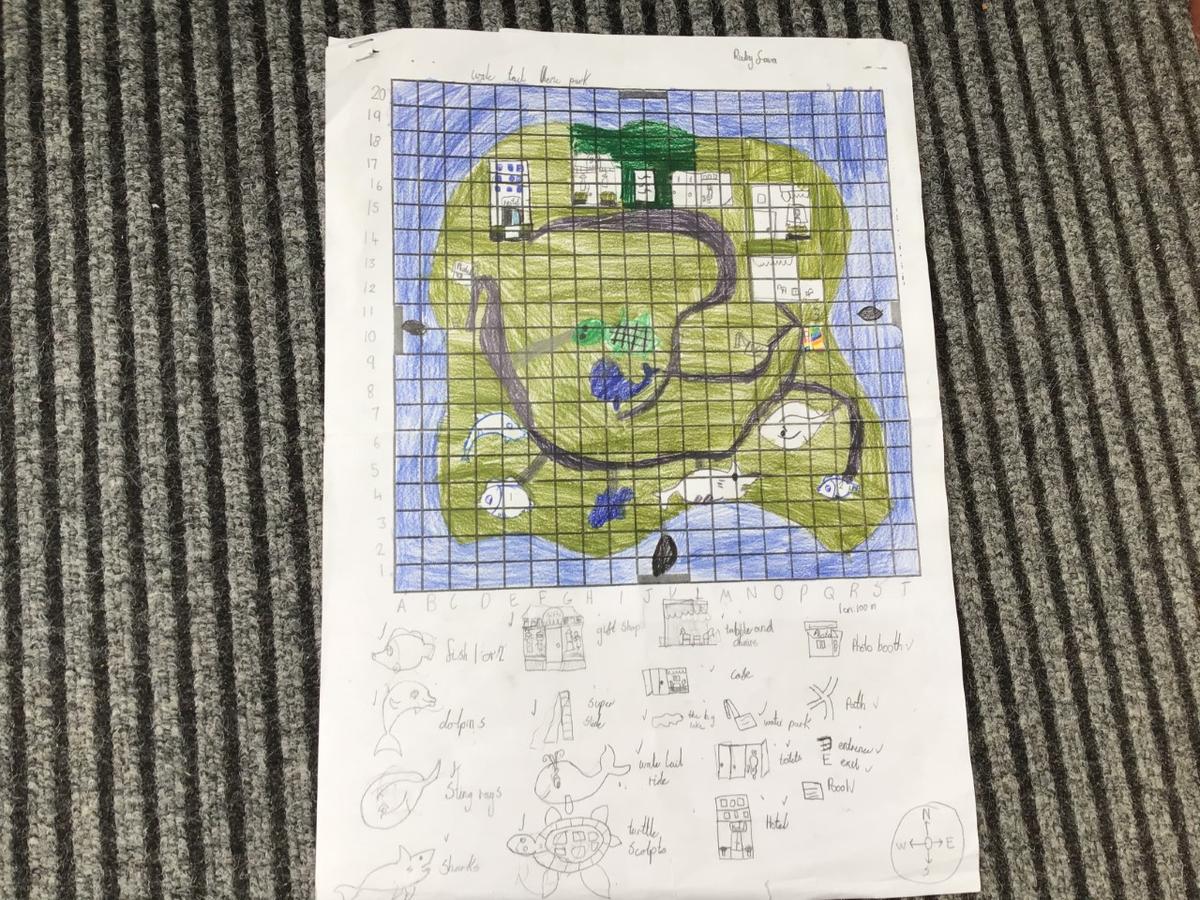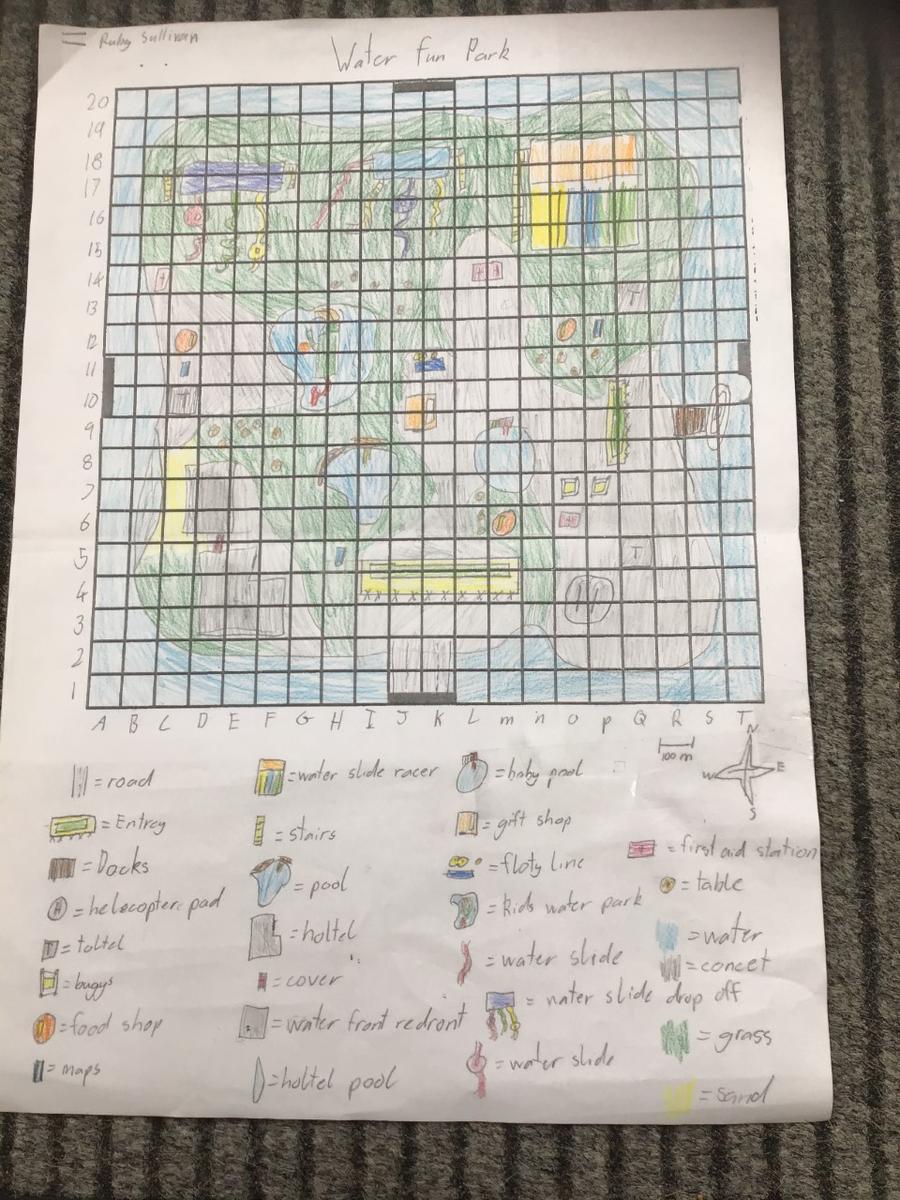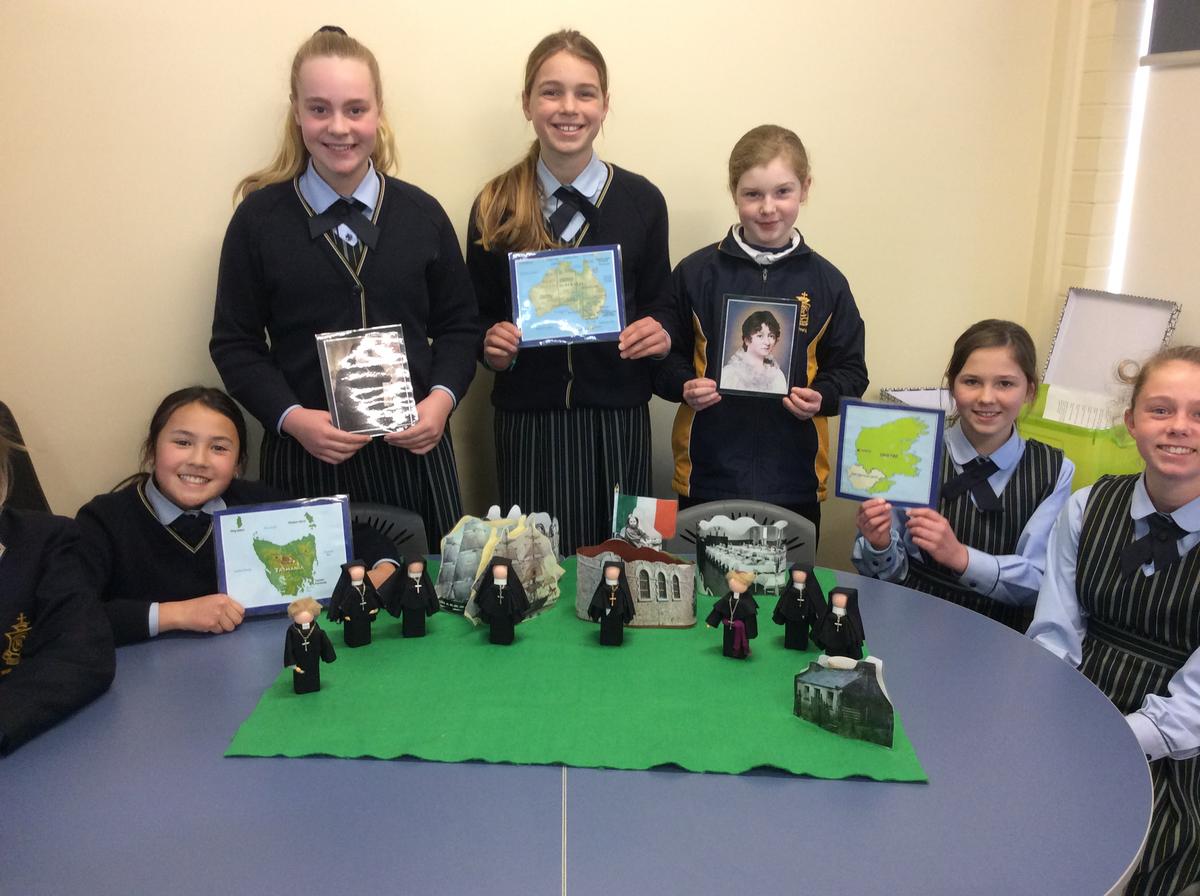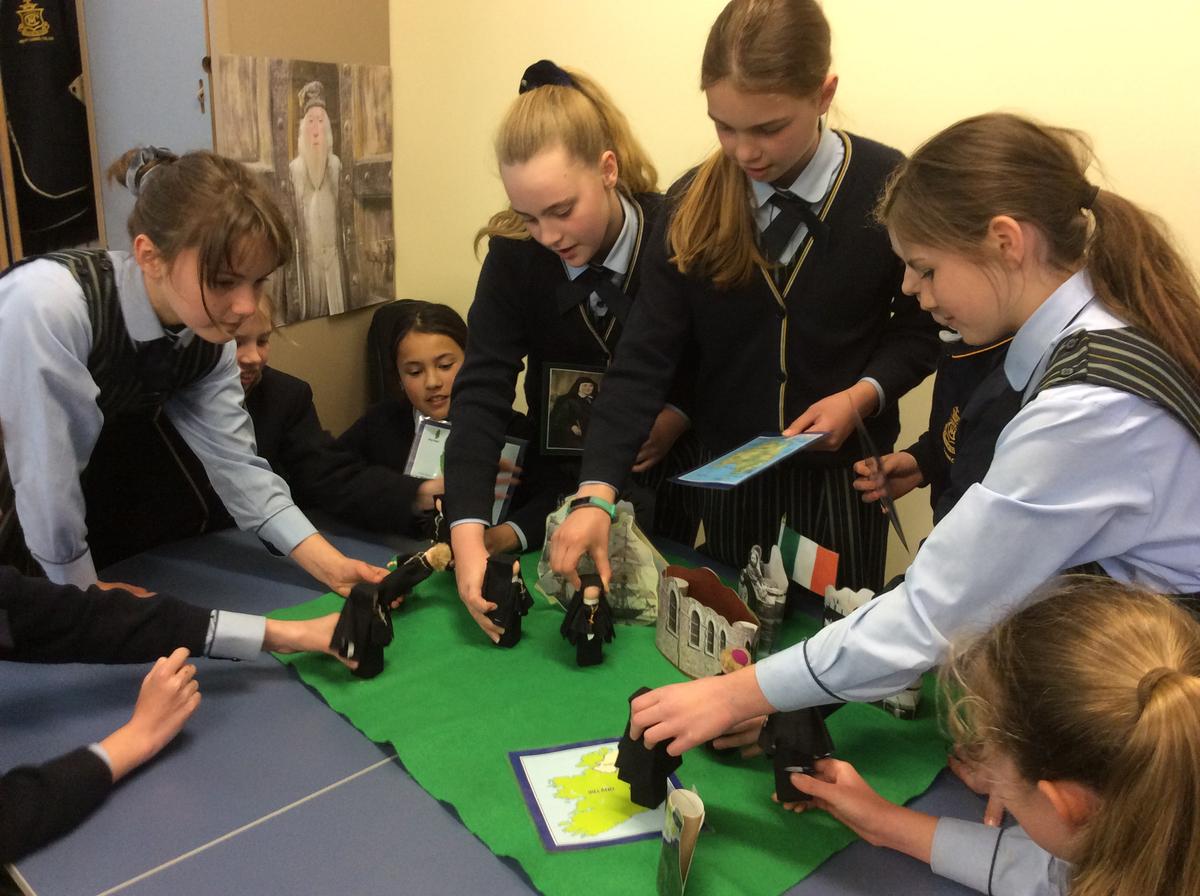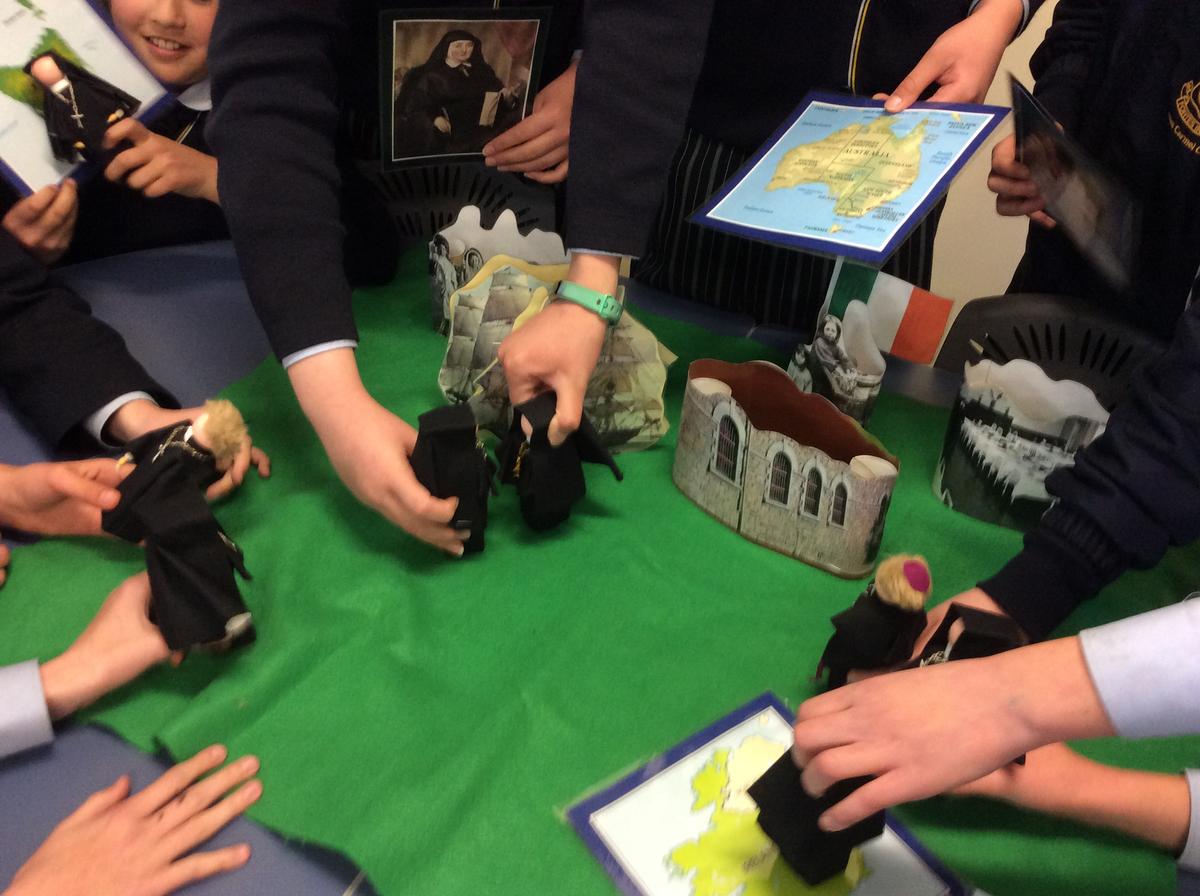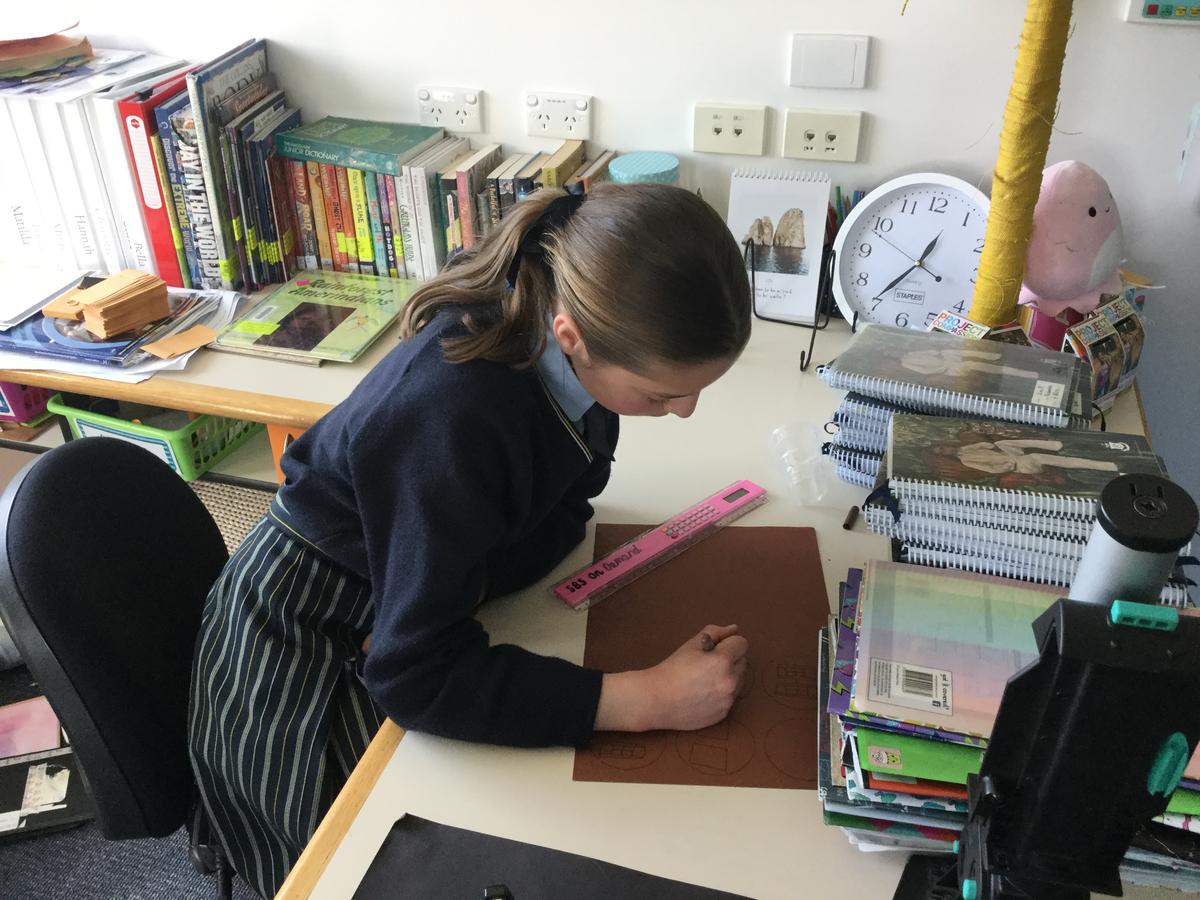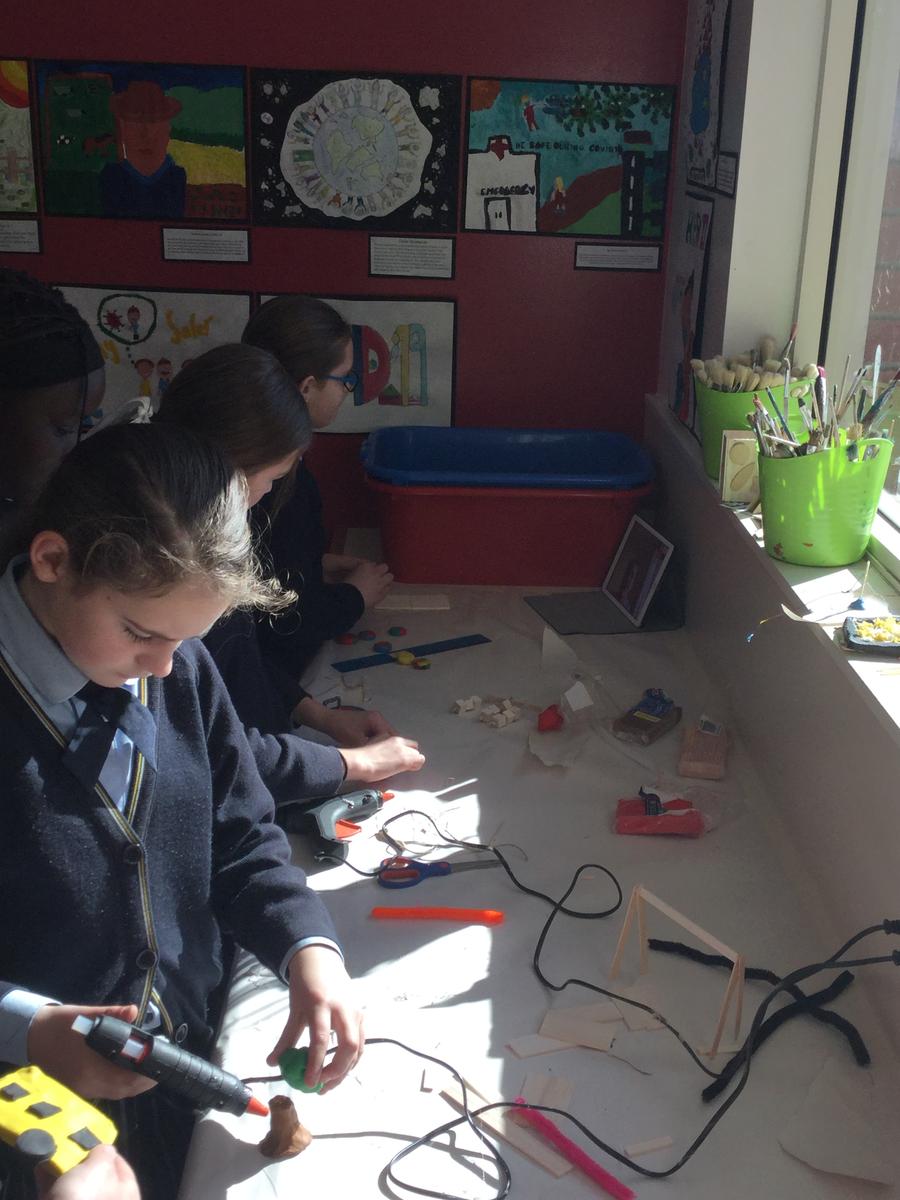Around the Primary Classrooms
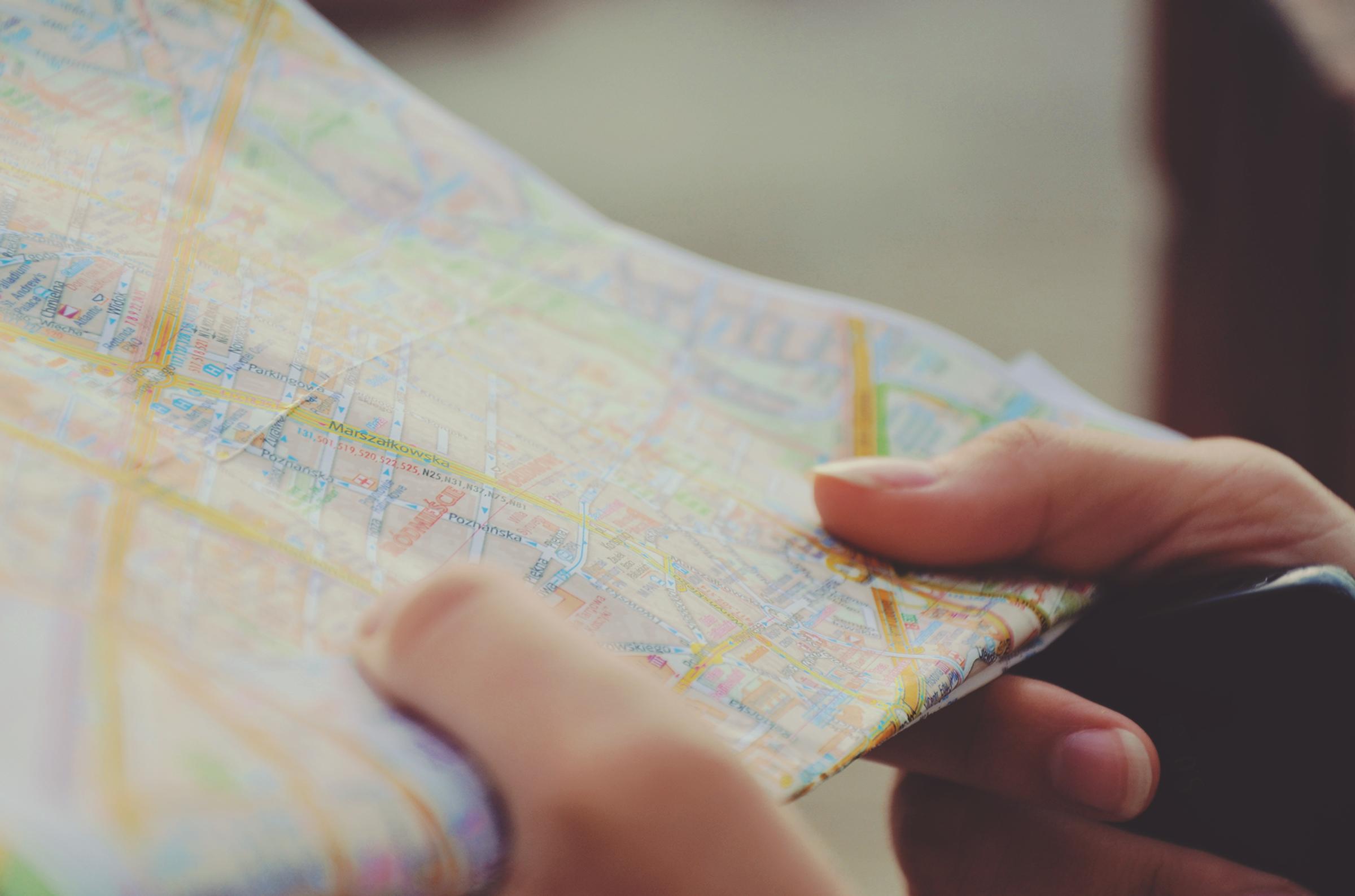
Year 4
Unquestionably, when faced with the challenge of having to navigate traffic in unfamiliar neighbourhoods we quickly turn to an app to give us clear directions. Not surprisingly, map reading and orienteering are quick becoming lost arts. This is clearly a concern given that research shows that reading maps and developing navigational skills can cause the hippocampus (the map reader of the brain) and the brain to grow, forming new pathways.
During the past week the Year 4 students have enjoyed exploring scales and using directions to find features on maps. They have thoroughly enjoyed creating their own maps of theme parks or zoos with an explicit focus on scale, keys and directions, in turn forming those ever important neural pathways.
Year 5 White
The students in 5 White have been learning about “wonder women” in History, Religious Education and STEM. This week they explored the story of Mary Aikenhead and the Sisters of Charity through godly play. The girls enjoyed the hands-on drama activity that made this inspiring story easier and more fun to learn.
Year 6 STEAM Program
If you have noticed some extra excitement in the Year 6 learning spaces recently, it is because we have finally started our STEAM program for 2020. After the disruption of COVID-19, students have been keen to make up for lost time, working on a range of integrated, collaborative projects. It may not look like the learning you are used to, with colourful piles of resources and tools spread out across any flat surface, but there is method to the madness. Students are learning together around projects they themselves have designed and made - building, modifying, and creating. The atmosphere is focused and productive, driven by student inspiration, with teaching staff acting as mentors, providing feedback and distributing resources. In short, it is 21st Century learning, embedding the skills essential for success in the technologically-saturated, resource-conscious global community.
The STEAM program has been developed and refined by the Year 6 teaching team over the past four years and is built around open-ended, collaborative, multimodal tasks. The learning cycle includes time for planning, making, presenting and reflecting. All tasks work together to establish a strong foundation of essential, transferable, 21st-Century skills. While students are engaged in tasks such as solving a global technology problem, creating and re-creating incredible electronic machines, or designing a model for an accessible play space, they are simultaneously developing their skills in Design Thinking, Solution Fluency, and the Invention Cycle; skills selected purposefully for both their future importance and strong basis in educational research. All tasks emphasise the importance of making, rather than consuming, and encourage the development of a maker mindset.
STEAM is part of a worldwide movement. The Institute for Arts Integration and STEAM in Maryland, United States, is one of many groups who see the potential of this way of learning. They describe it this way: "STEAM takes STEM to the next level: it allows students to connect their learning in [Science, Technology, Engineering, and Maths] together with arts practices, elements, design principles, and standards to provide the whole pallet of learning at their disposal. STEAM removes limitations and replaces them with wonder, critique, inquiry, and innovation." Sounds like a good deal to us!

